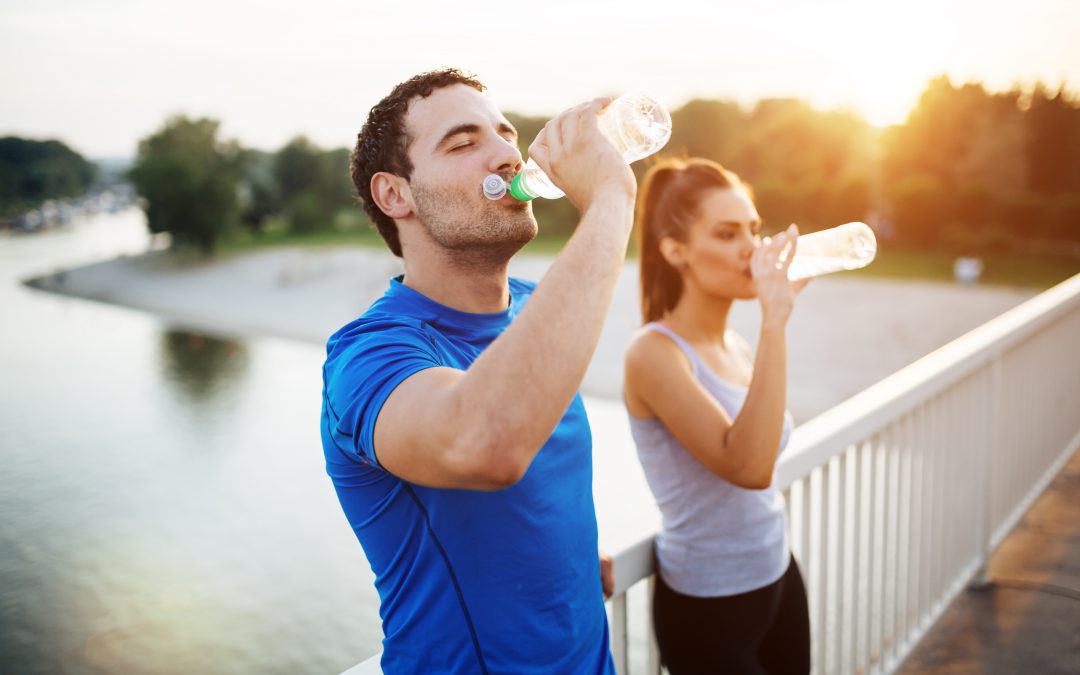Maintaining optimal hydration is essential for the body to function correctly, especially during exercise or in hot weather. If you have become dehydrated, it is important to restore your body’s water balance as soon as possible. Just drinking a lot of water, however, is not usually sufficient. The water in your body also contains electrolytes, which are important minerals that allow your body to carry out critical chemical reactions. Rehydrating after dehydration must restore these electrolytes because they tend to be lost when water is lost. Failure to do so can result in a state called hyponatremia, or “water intoxication,” which can cause headache, fatigue, muscle cramps, stomach upset, and in extreme cases, even death.
Step 1
Drink water. No, it might not treat all cases of dehydration, but it is a good place to start. Drink relatively slowly to avoid stomach upset. Drinking a lot of water quickly will also cause your body to expel a significant amount of it as urine, which will slow the rehydration process.
Step 2
Eat food, especially foods that are high in electrolytes and water. Sodium and potassium are the quintessential electrolytes needed for hydration. Vegetables and fruits tend to have a high water content. Something with a little salt and vegetables is often ideal, like vegetable soup. A 1997 study published in the “British Journal of Sports Medicine” found that rehydrating with water and a meal was more effective than rehydrating with a sports drink alone.
Step 3
If eating food is not an option, drink a fluid replacement beverage or a sports drink. These drinks contain electrolytes that will help your body retain the water and restore fluid balance more quickly. They also help prevent hyponatremia. If you want to avoid the sugar found in many sports drinks, try coconut water as a source of electrolytes.
Step 4
Drink more than the amount of fluid you have lost. For instance, if you exercise in the heat for two hours and lose 1 liter of fluid through sweat — approximately 2 pounds of weight lost during the workout — you will not be rehydrated until you have consumed one-and-a-half to two times the amount of fluid lost. This is because any time you consume fluid, some of it will be lost through urine. The amount lost through urine is decreased if you consume fluid containing electrolytes or food.
Step 5
Do not drink alcohol or excessive amounts of caffeine. Both of these contribute to increased urine production, making it more difficult for your body to retain fluids during rehydration.

